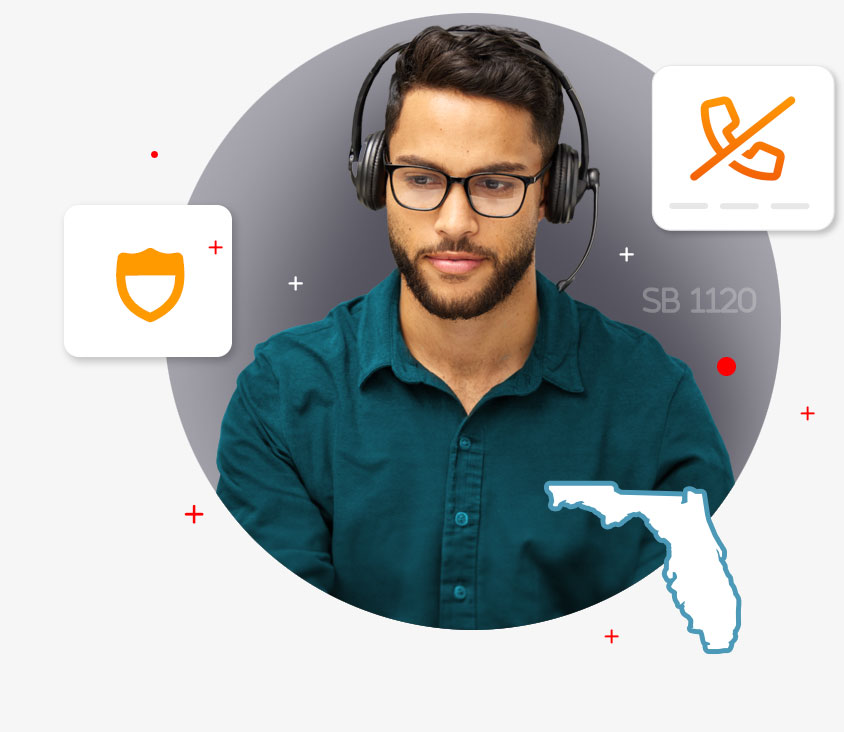
BACKGROUND
Background
In April 2021, the US Supreme Court issued an opinion in a major case pertaining to Facebook that was viewed as favorable to the contact center industry and a blow to the TCPA. However, many states began reviewing their own calling guidelines and refining them accordingly. Florida passed an update (SB 1120) to their own Florida Consumer Protection Law and the Florida Telemarketing Act, to extend beyond certain limitations in the TCPA that took effect on July 1, 2021.
PROVISIONS
Notable Provisions
All these provisions apply to B2C communications, and three of the provisions (i.e., calling times, call attempts per day, & caller ID restrictions) also apply to B2B communications.
- Restricted Use of ATDS: The law restricts the use of automated technology (ATDS) and prerecorded messages by requiring prior express written consent before making sales or marketing calls and removes exemptions for making calls without consent. This restriction even applies to calls made with an established business relationship (EBR) and calls to consumers who are not on the Florida state DNC list.
- Auto-Dialer Definition: The definition of an auto-dialer under Florida law is broader than the Federal TCPA and includes “an automated system for the selection or dialing of telephone numbers or the playing of a recorded message.”
- Private Right of Action: The law includes a private right of action with potential damages as high as $1500 for each willful violation, or actual damages or $500, whichever is greater, for violations that are not deemed to be willful. Companies that are found to violate these rules may also be prohibited from calling activities in the state.
- Florida Area Code Presumption: The law adds a presumption that any call to a Florida area code is a call to a Florida resident or a person in the state. Companies doing business outside of Florida should not assume they are not contacting Florida area codes without verification.
- Calling Times: The law updates legal calling times from 8 AM—9 PM to 8 AM—8 PM. Florida has two time zones and companies must be aware of this when dialing consumers.
- Number of Calling Attempts: The law sets a cap on the number of calling attempts at three attempts per 24-hour period, per person. If a person has multiple numbers associated to them, each attempt counts regardless of the number used.
- Caller ID Restrictions: Updates Caller ID restrictions for calls from and into Florida.
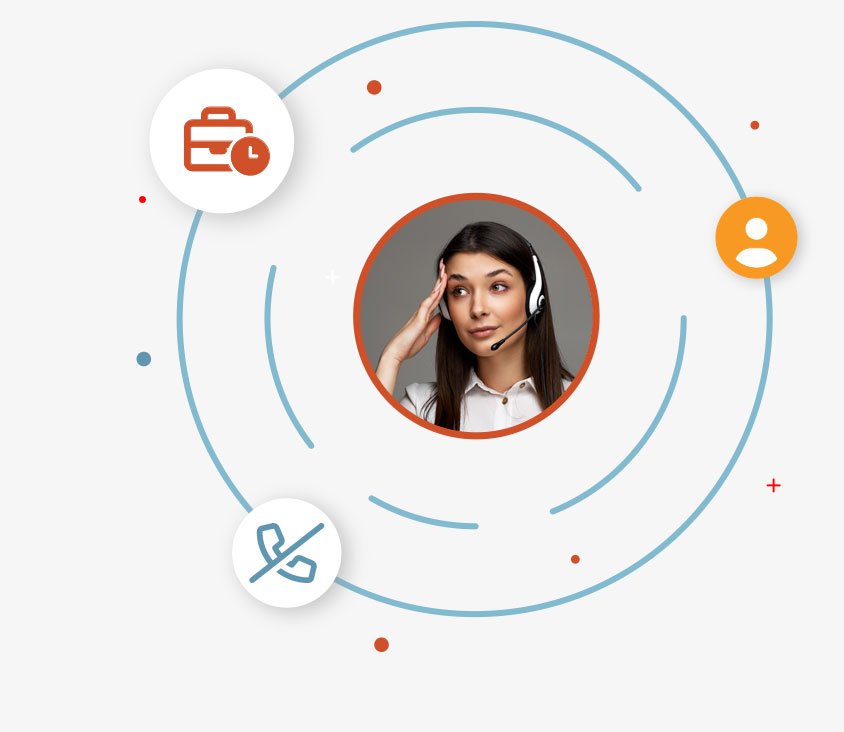
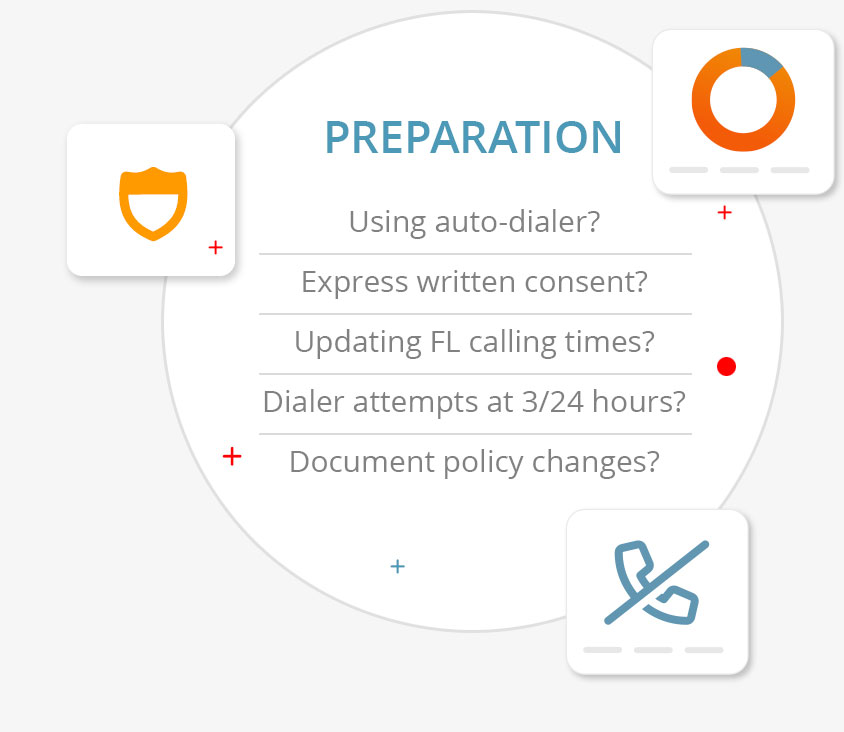
PREPARATION
How should you prepare for these changes?
- Determine Auto-Dialer Status: Determine whether your dialing platform is an auto-dialer under Florida law. The Florida definition of an auto-dialer is broader than the Federal standard and includes any “automated system for the selection or dialing of telephone numbers or the playing of a recorded message.”
- Obtain Express Written Consent: Make sure you obtain Express Written Consent prior to placing calls to Florida area codes or persons in Florida. This includes ensuring that any purchased leads have adequate Express Written Consent for your business to call. Maintain records of Express Written Consent for at least five years from the last date the consent was relied upon to place a call.
- Update Calling Times: Update your calling times for calls to Florida area codes to 8 AM—8 PM. Keep in mind that Florida is a two-time-zone state when making these changes.
- Cap the Number of Call Attempts: Ensure that your dialer can cap the number of attempts to Florida area codes and persons in Florida to three attempts per 24-hour period. This may include ensuring that lists are appropriately de-duped to make sure that the same number coming in from various lead sources is not called more than three times in 24 hours.
- Document Policies: Document any changes made to your policies or procedures, and when they went into effect.
DNCSOLUTION
DNCSolution helps you comply with Florida telemarketing rules
In addition to standard DNCSolution features that help maintain compliance with Do Not Contact regulations across the country, DNCSolution offers several ways to comply with the new Florida telemarketing rules.
- Create filters to exclude or include states, area codes, and regions as needed
- Modify projects or API profiles to utilize features to comply with specific data sets
- Set up automatic scrubbing on a schedule to ensure that contact lists are up-to-date with all relevant DNC registries
To learn more about how DNCSolution can help your organization stay in compliance with Florida’s SB1120 regulation, contact us at info@possiblenow.com.
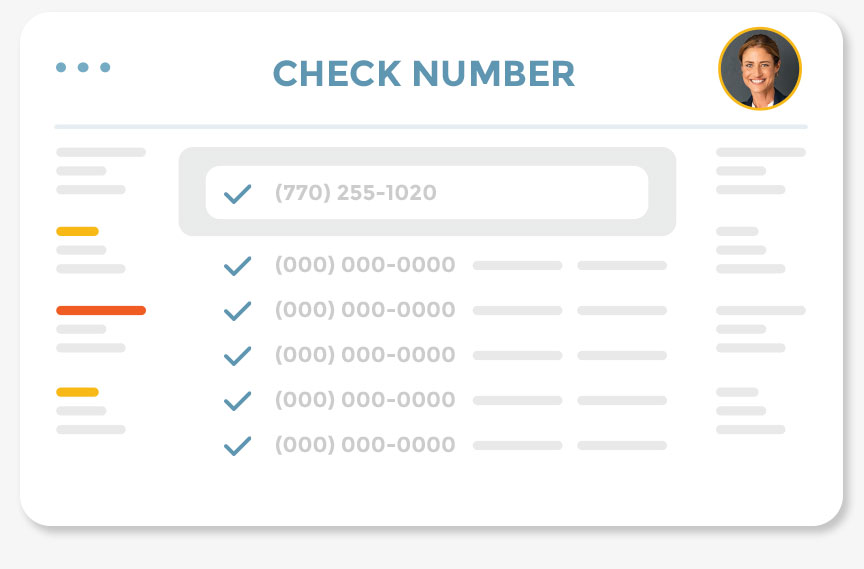
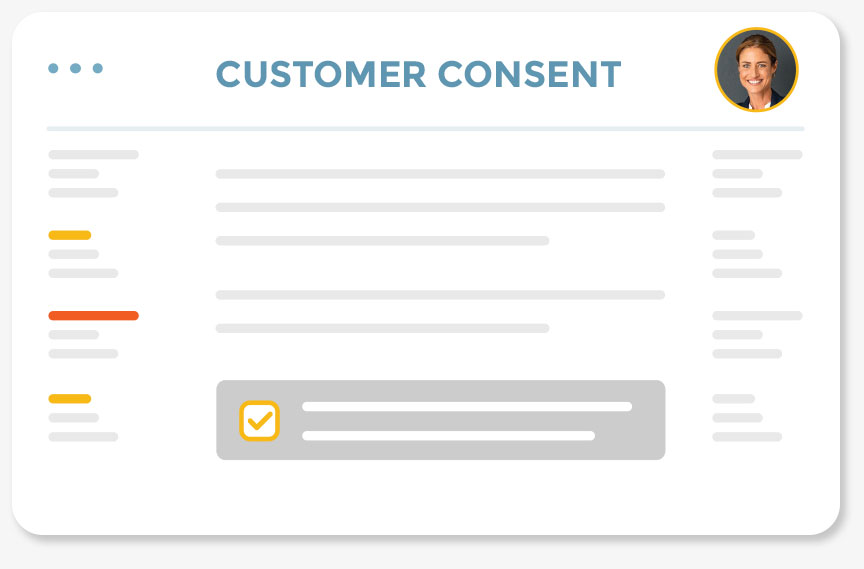
MYPREFERENCES
Capture Customer Consent with MyPreferences
With the passage of Florida's State Bill 1120, collecting consent from customers is paramount. Collecting consent helps you to maintain open lines of communication while respecting customers wishes and building relationships based on trust. Florida is only the beginning: as states continue to enact their own Do Not Contact rules and regulations, companies must be confident that their processes and platforms are up to the task of maintaining compliance.
PossibleNOW can help your company create, implement, and maintain a process for gathering customer consent through a combination of expert consultants and world class platforms such as MyPreferences.
